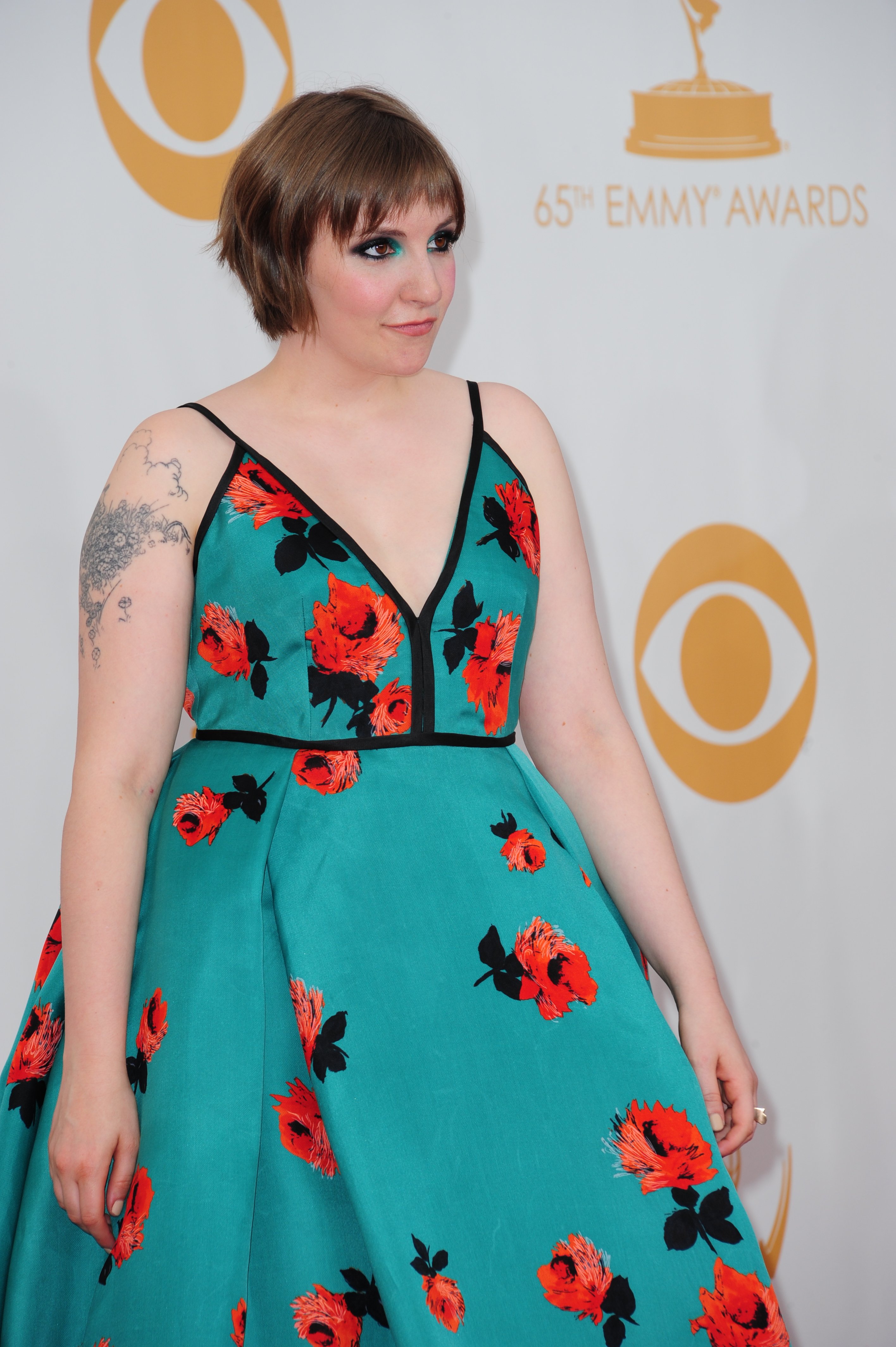Lena Dunham on Tuesday softened her criticism of a Spanish newspaper over what she called a “more than average” Photoshop job on a cover image of her.
But she isn’t backing down from her criticism of the practice of altering images in unrealistic ways — one she seemed to at least partially embrace a few years ago when controversy erupted over her heavily edited Vogue photo shoot.
“Maybe it’s getting sick and realizing ALL that matters is that this body work, not that it be milky white and slim,” Dunham wrote on Instagram in response to El País’ statement that it had not altered her image. “But I want something different now.”
Dunham announced this month that she was taking a break from publicity for her HBO show, “Girls,” due to an endometriosis diagnosis.
The discussion over the photo flared Monday, when Dunham posted an Instagram photo featuring the latest cover of the El País insert Tentaciones, featuring a 2013 photo of her by celebrity photographer Ruven Afanador.
“Oh hello El Pais!” the actress and producer wrote. “I am genuinely honored to be on your cover and so happy you licensed a pic by @ruvenafanador, who always makes me feel gorgeous.”
“BUT this is NOT what my body has ever looked like or will ever look like- the magazine has done more than the average photoshop,” she wrote. “So if you’re into what I do, why not be honest with your readers?”
But El País, which published the image in its Tentaciones magazine, said in Spanish-language statement on its website that it used the original image — unretouched.
“Those who know us and follow our magazine know that we do not use Photoshop or other digital tools to change the appearance of people who are on our cover or inside the magazine,” the newspaper wrote.
El País said that it used the image as received from Corbis and that it had been previously approved by the agency, Afanador and Dunham’s publicist. It was originally shot for Entertainment Weekly, the newspaper said.
The only change, El País said, was to crop the image to fit its format.
That El País says it didn’t retouch the image doesn’t mean it wasn’t altered at some point, of course. Some fans have suggested that the photographer may have changed the image in 2013. So far, he hasn’t commented.
After El País denied retouching the image Tuesday, Dunham apologized for focusing her ire on the publication.
“But it’s a weird feeling to see a photo and not know if it’s your own body anymore (and I’m pretty sure that will never be my thigh width but I honestly can’t tell what’s been slimmed and what hasn’t.)” she said on Instagram.
In her response, she touched on the 2014 controversy over her Vogue shoot, in which critics accused the magazine of heavily retouching Dunham’s body.
At that time, she defended the magazine.
“Vogue isn’t the place that we go to look at realistic women,” Slate quoted her as saying after Jezebel published the unretouched images.
“Vogue is the place that we go to look at beautiful clothes and fancy places and escapism and so I feel like if the story reflects me and I happen to be wearing a beautiful Prada dress and surrounded by beautiful men and dogs, what’s the problem?” she said, according to Slate. “If they want to see what I really look like go watch the show that I make every single week.”
She acknowledged Tuesday that she has “a long and complicated history with retouching” but intimated that times have changed, and perhaps her attitude, too.
“I wanna live in this wild world and play the game and get my work seen, and I also want to be honest about who I am and what I stand for,” she wrote.
But, she said, she wanted to “get to the bottom of this in a bigger way,” an apparent reference to the retouching issue.
Heavy use of photo editing software has become a big issue in recent years, with numerous celebrities and others railing against the practice of digitally thinning arms, legs and hips and making other changes that can drastically alter a person’s appearance to a sometimes absurd extent.
Critics have accused magazines of using the technology to peddle an unrealistic — and often unattainable — standard of beauty.
In October, singer and actress Zendaya called out Modeliste for heavily altering images of her and posted the original images side by side with the retouched versions.
“These are the things that make women self conscious, that create the unrealistic ideals of beauty that we have,” she wrote.



